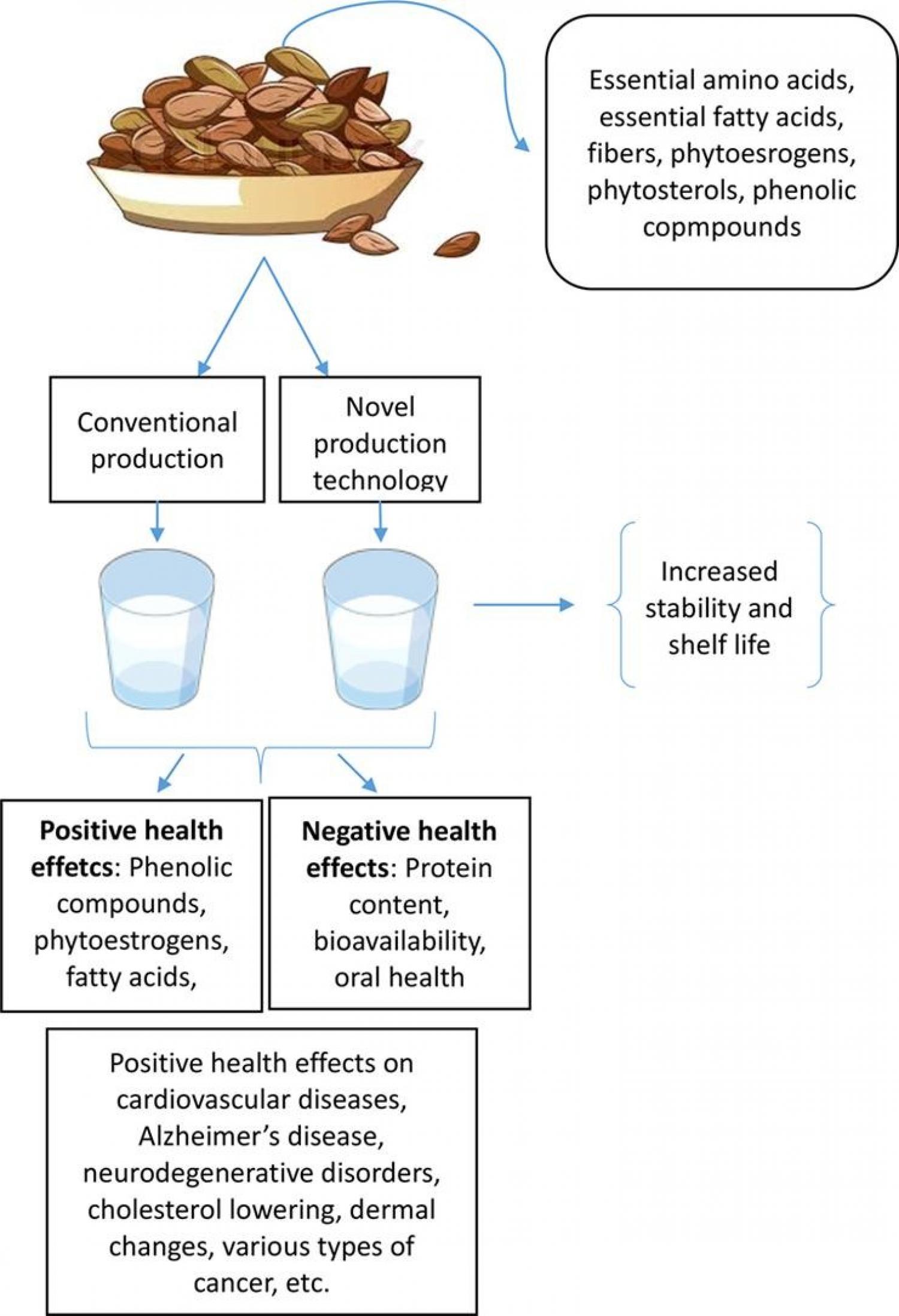
Elsevier, Journal of Functional Foods, Volume 70, July 2020
The consumption of plant-based milk substitutes has spread rapidly around the world due to its numerous positive health effects on the human body. Individuals with cow's milk allergy, lactose intolerance, and hypocholesterolemia prefer these beverages. In spite of the added sugar and lack of total protein content, phenolic compounds, unsaturated fatty acids, antioxidant activity, and bioactive compounds such as phytosterols and isoflavones make plant-based milk substitutes an excellent choice. In addition to the health effects, this review includes conventional and novel processes for 12 different plant-based milk substitutes including almond, cashew, coconut, hazelnut, peanut, sesame, soy, tiger nut, oat, rice, hemp, and walnut. The unique element of this review is our holistic approach in which 12 different plant-based milk substitutes production techniques are presented, including patents, the health effects of bioactive compounds, the bioavailability of vitamins and minerals, the market share, consumer acceptance, and the environmental impact.
